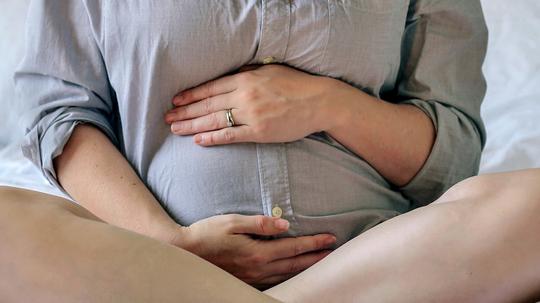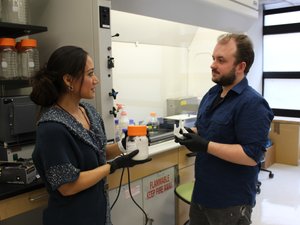
About a year and a half ago, Tony Zhang and his wife experienced one of the worst tragedies a family could suffer. While in utero, their baby boy died of a heart condition, and they had no idea why.
“It was the 26th week [of pregnancy] and we went into the OBGYN’s office for the regular [appointment],” Zhang said. “But both the doctor nor the nurse could find the heartbeat of my baby. But he was completely fine four weeks before.”
The loss was unimaginably difficult to process, and Zhang said afterwards he was constantly thinking of ways he and his wife could have predicted their baby’s heart condition. He wanted to prevent it from ever happening to his or anyone else's family again, which is how he eventually came up with the idea for LiveBeat, a startup he founded in Chicago that is making a wearable device for pregnant women that allows them to monitor a fetus’ heart rate.
“It’s like a Fitbit for fetuses,” said Zhang, who received an MBA from the University of Chicago's Booth School of Business and competed in the college's Innovation Fund Finals on May 31.
Zhang also has a background in computer science and microelectronics, and has worked at Intel and Merrill Lynch.
LiveBeat's belt-like device has smart sensors built into it that can pick up fetal heart rates and transfer data to a smartphone app, where moms and doctors can monitor it.
LiveBeat is currently in the process of making two prototypes for its device. One will be a regulated medical device, which will send fetal heart rate data to parents, their doctors and a team of scientists at LiveBeat. Once the prototype of this device is complete, it will be entered into a U.S. Food and Drug Administration trial so that OBGYNs will eventually be able to prescribe it to patients whose babies are more susceptible to heart conditions. The data will also be useful in identifying and diagnosing fetal heart conditions, Zhang said.
The second version of LiveBeat’s heart monitor will be a more basic, consumer version, Zhang said. It won’t require FDA clearance, which means it won’t have all the capabilities that the medical device version will have. Its fetus heart rate data won't be as in depth and it won’t send data to doctors and LiveBeat; only parents will be able to view it on their smartphones. The prototype of the consumer device will be finished this summer and Zhang said he expects it to retail on Amazon for $199.
Zhang said LiveBeat is a better option for pregnant women than what’s currently on the market. Other devices, like doppler heart monitors, are ultrasound based, which means that for the average mom, it can be hard to know where the baby’s heart is to get the most accurate reading.
“We can easily prove that we are scientifically equivalent and even better than the doppler out there,” Zhang said. “We are way more safe.”
LiveBeat, which currently has a team of seven, is looking for funding to help support their FDA trial and bring the products to the market, Zhang said.
“I designed LiveBeat because of a tragedy that happened to my wife and me,” he said. “I had to come up with a solution to help prevent this from happening again and to reduce anxiety for pregnant moms.”








